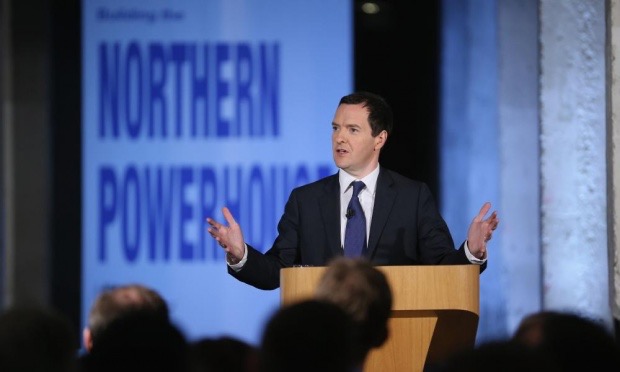Devolution in England is to be welcomed and that the northern powerhouse should proceed ‘full steam ahead according to a survey of local businesses carried out by the research body IPPR North published today.
Despite an element of caution on the part of some national business bodies, businesses in the north, the survey found, both large and small, appear more bullish and have clearly identified the commercial benefits of locating economic decision-making ‘closer-to-home’.
Whether in terms of a more devolved skills system, more local control of transport and other infrastructure, or even business rates and local tax variation, northern businesses clearly put more trust in local government and the emerging combined authorities in city-regions to work in their interests than they do in central government.
This, say the report’s authors, should add further encouragement to national government to press ahead with its Cities and Local Government Devolution Bill and to work hard to ensure devolution in England remains a central feature of its programme across government. It should also help to persuade local councils to work collaboratively with each other and with Westminster to ensure they secure the best deal for their area.
However barriers were identified.
The Cities and Local Government Devolution Bill, which is currently progressing through parliament, is relatively permissive in its current form and the organisation warns that Government would do well now to ensure the bill does not become overloaded with technical amendments that work to narrow the possibilities for a rich tapestry of local approaches.
Secondly the devolution agenda has focussed exclusively on city-regions, Manchester and Leeds in particular and while IPPR agree that there is an economic logic to this position, economic growth potential does not lie exclusively or even predominantly within those five core cities that have so far constituted combined authorities and the billwill be challenged to understand the local dynamics well enough to judge between competing claims, in some cases between overlapping areas.
The third problem with the bill, and its consequences: that there is still a distinct lack of due process for new and emerging combined authorities to follow. Government is right to create a permissive context in which different areas can bring forward their own proposals and demands, as this reflects a genuine approach to localism. Nevertheless, a system without sufficient ‘rules of the game’ risks coming off as arbitrary and effectively concentrating power in the hands of a small number of ministers and their advisors.
The second major barrier to progress lies in central government’s propensity, or reluctance, to put its money where its mouth is. A critical element of the northern powerhouse project concerns major investment in transport infrastructure. In the March 2015 budget, the chancellor committed £12.5 million to the further development and appraisal of the various schemes that comprise the Transport for the North proposals but beyond this, no public money has yet been committed.
Finally many businesses expressed concerns about Scottish devolution. While northern businesses generally express their sympathy with the civic nationalism voiced north of the border, and envy the kind of devolutionary demands being made there, they have two significant fears.
First, there is resentment at the generosity of the Barnett formula and a very real sense that, with London treated as a special case – Scotland’s gain is the north of England’s loss.
Second, there is a real worry that the new Scotland Bill will give Holyrood fiscal powers that will enable it to attract business and investment away from the north of England. Unless something is done to redress these ‘borderlands’ issues, ideally through a more generous and permissive fiscal settlement with combined authorities in the north, then once again there is a risk that northern powerhouse proposals will simply be trumped by a more powerful and autonomous Scotland.
Northern businesses are keeping a watchful eye on London. As attention turns to the mayoral elections in May 2016, there are real fears that a hotly contested battle between the two major parties could lead to government pledges and commitments that will once again privilege the capital city over the rest of England.







